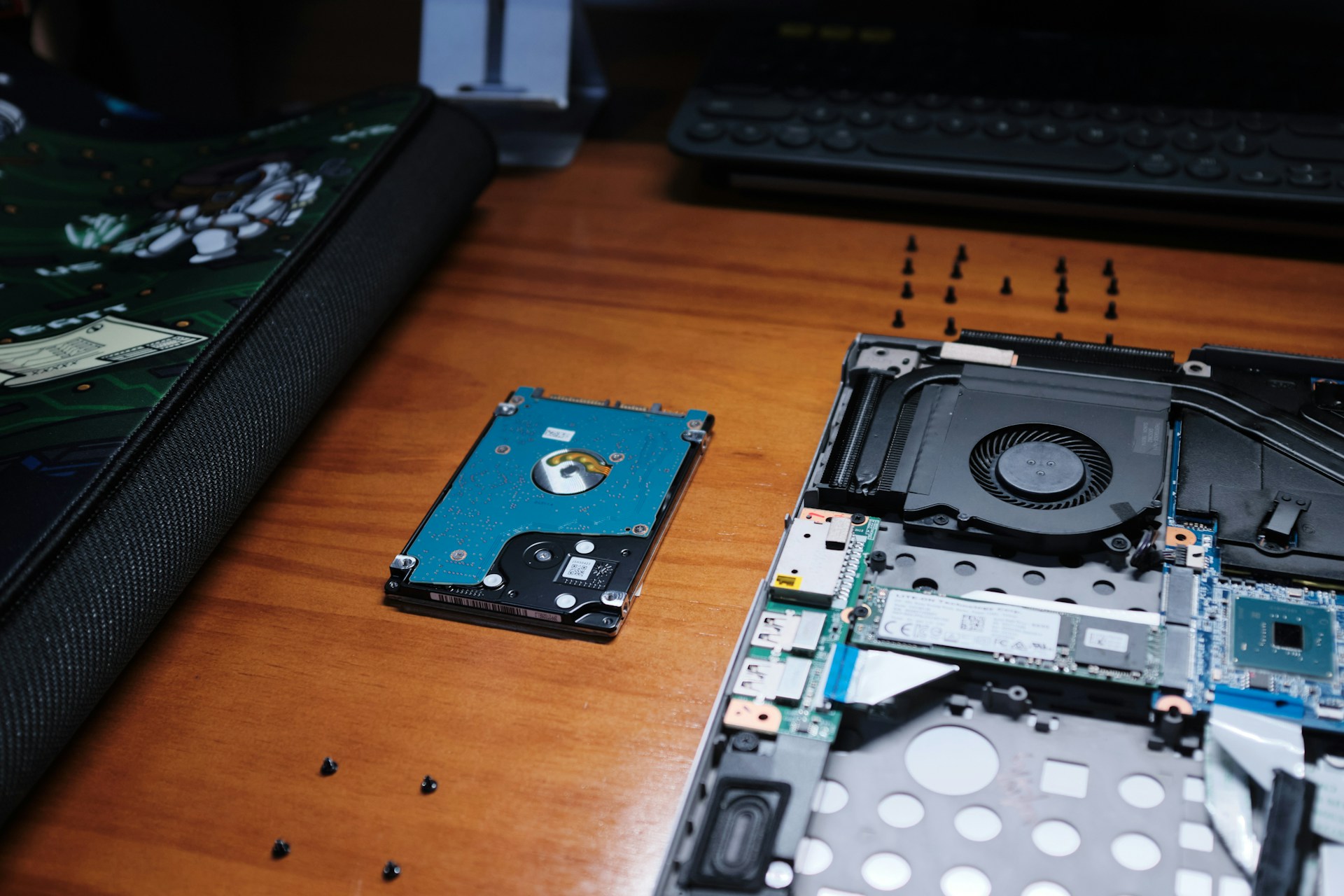
Can We Use CPU Hard Disk in CCTV DVR? Here’s the Honest Answer from an Expert
If you’ve ever set up or maintained a CCTV system, you’ve probably wondered —
“Can we use a CPU hard disk in a CCTV DVR?”
It’s a fair question. Maybe you’ve got a spare computer hard disk lying around and you’re tempted to save some money by using it in your DVR. After all, they both store data, right?
Well, as someone who’s spent over 10 years installing, repairing, and maintaining CCTV systems for homes and businesses, I can tell you — this is one of the most common questions clients ask. And while it sounds practical, it’s not that simple.
In this guide, I’ll break down the real differences between CPU hard disks and CCTV hard disks, explain the risks of using a computer HDD in a DVR, and share what I’ve learned from years of hands-on experience.
1. Understanding How a Hard Disk Works in a CCTV DVR
Before deciding whether a CPU hard disk can be used in your CCTV DVR, it’s important to understand what that hard disk actually does in a surveillance system.
A CCTV DVR (Digital Video Recorder) is responsible for capturing and storing live video footage from multiple cameras — often running 24 hours a day, seven days a week. The DVR constantly writes large amounts of video data to the hard disk, overwriting older footage as new data comes in.
That means your DVR’s hard disk is doing non-stop sequential writing, unlike a normal computer where a hard disk is used for occasional reading and writing — opening files, running software, or transferring data.
This difference in usage pattern is crucial.
A CPU hard disk isn’t built for continuous writing. It’s built for multitasking, not constant recording. That’s why manufacturers created surveillance-grade hard disks designed specifically for video storage.
2. The Short Answer: Can We Use CPU Hard Disk in CCTV DVR?
Technically, yes, you can use a CPU (computer) hard disk in a CCTV DVR — it will usually fit, format, and record video footage.
But practically and professionally speaking, you shouldn’t — not if you care about your data’s reliability.
Here’s why:
A CPU hard disk might work for a few days or even a few months, but because it’s not designed for continuous 24/7 operation, it eventually:
-
Overheats and fails prematurely
-
Develops read/write errors
-
Corrupts or loses critical footage
-
Causes DVR lag or random restarts
So while it’s possible, it’s not recommended for long-term use.
Real Example:
A few years ago, one of my small business clients reused an old desktop hard drive in their 8-channel DVR to save money. Everything looked fine for about three months — until one day, the system started showing “HDD error.” When I checked, the drive had failed completely, and they lost two weeks of important footage. Since then, I’ve always advised clients: use the right drive for the right job.
3. The Key Differences Between a CPU Hard Disk and a CCTV Hard Disk
Here’s a clear, side-by-side comparison that shows why surveillance-grade drives are different and more reliable for DVR use:
| Feature | CPU Hard Disk (Desktop HDD) | CCTV Hard Disk (Surveillance HDD) |
|---|---|---|
| Designed For | General computing, multitasking | Continuous 24/7 video recording |
| Workload Rating | 50 TB/year | 180–300 TB/year |
| Performance Optimization | Random read/write operations | Sequential write optimization |
| Operation Time | 6–8 hours/day | 24/7 non-stop |
| Temperature Tolerance | Moderate | Enhanced cooling for constant operation |
| Error Recovery | Aggressive (pauses to correct errors) | Non-intrusive (keeps recording) |
| Noise and Vibration Control | Basic | Advanced vibration resistance |
| Life Expectancy in DVR | 3–6 months | 3–5 years |
As you can see, CPU hard disks simply aren’t built for the kind of continuous, heavy-duty work a DVR demands. Surveillance drives are fine-tuned to handle constant video streaming with minimal wear and tear.
4. What Happens When You Use a CPU Hard Disk in a DVR
Let me share what usually happens when people use computer hard disks in their CCTV DVRs.
a) Overheating and Failure
DVRs are often kept in small, enclosed boxes without much airflow. CPU hard disks heat up faster and, without proper cooling, their components degrade quickly.
b) Frame Drops and Video Corruption
Because desktop drives struggle with sustained sequential writes, they can’t keep up with real-time video recording. This leads to dropped frames, missing moments, or corrupted files.
c) Shortened Lifespan
While a surveillance drive lasts for years, a CPU HDD may die in months under 24/7 load. In many cases, it simply stops being detected by the DVR.
d) Data Loss When You Need It Most
This is the biggest risk. If an incident occurs — a theft, accident, or security breach — you might discover the footage wasn’t recorded properly or is unreadable.
Pro Tip from Experience:
I’ve seen clients spend more on replacing failed CPU hard disks than they would have spent on a proper surveillance drive in the first place. Reliability always wins in the long run.
5. How to Identify If You’re Using a CPU Hard Disk in Your DVR
If you’re unsure which type of drive your DVR is using, here’s how to check:
-
Open your DVR’s storage menu (often under HDD Management or Storage Info).
-
Note down the model number of your hard disk.
-
Search the model number online.
-
For example, “WD10EZEX” is a desktop drive.
-
“WD10PURX” or “WD Purple” is a CCTV surveillance drive.
-
-
You can also check the label on the drive itself — surveillance drives usually have keywords like Purple, SkyHawk, or Video Storage.
If you find you’re using a CPU HDD, it’s a good idea to back up your important footage and consider upgrading soon.
6. Best Hard Disk Options for CCTV DVRs
If you want long-term reliability and peace of mind, go for drives built specifically for CCTV systems. The most trusted ones include:
-
Western Digital (WD) Purple Series – designed for 24/7 operation and up to 64 HD cameras.
-
Seagate SkyHawk Series – optimized for NVRs/DVRs, with ImagePerfect firmware for smooth video streaming.
-
Toshiba S300 Surveillance HDD – known for durability and quiet operation.
These hard disks handle continuous data flow without overheating or corruption. In my installations, they’ve consistently delivered stable performance for years.
Expert Note:
Always check your DVR’s maximum supported capacity before upgrading (for example, some support up to 6TB, others up to 10TB).
7. Can You Use a CPU Hard Disk Temporarily in a CCTV DVR?
Yes, but only temporarily.
If your surveillance drive has failed and you urgently need to record, you can use a CPU hard disk as a stopgap solution.
However, follow these precautions:
-
Use it only for a short duration (days or weeks, not months).
-
Keep your DVR in a well-ventilated area to avoid heat damage.
-
Enable motion-based recording instead of 24/7 recording to reduce strain.
-
Regularly check HDD health via the DVR’s status menu.
Once you get a proper CCTV drive, replace the CPU HDD immediately.
8. How to Replace a CPU Hard Disk with a CCTV Hard Disk
If you’re ready to upgrade, here’s a simple step-by-step guide:
-
Turn off your DVR completely and unplug it.
-
Open the DVR case carefully using a screwdriver.
-
Disconnect the SATA and power cables from the existing drive.
-
Install the new surveillance hard disk in the same slot.
-
Reconnect the cables securely (make sure the connection is snug).
-
Power on your DVR and go to HDD Settings.
-
Format the new drive from within the DVR menu before recording.
- Read More : cctv camera on rent near me
That’s it! Your DVR is now ready for continuous, reliable operation.
9. My Professional Recommendation (After 10 Years in CCTV)
After setting up and maintaining hundreds of CCTV systems, here’s my straightforward advice:
Avoid using CPU hard disks in DVRs for long-term recording.
It’s not worth the risk.
A failed hard disk doesn’t just cost money — it can cost you critical footage when you need it most.
A surveillance-grade hard disk, though slightly more expensive, provides:
-
24/7 recording stability
-
Longer lifespan
-
Smoother performance
-
Peace of mind
If your CCTV system protects something valuable — your home, business, or family — don’t take shortcuts on storage.
Conclusion: Can We Use CPU Hard Disk in CCTV DVR?
So, can we use a CPU hard disk in a CCTV DVR?
Technically yes, but practically no.
While a CPU hard disk might work for a short period, it’s not designed for continuous video recording. Over time, it will overheat, slow down, or fail — potentially causing loss of important surveillance footage.
If you want dependable performance, always choose a surveillance-grade HDD built specifically for DVR/NVR systems. It’s the foundation of a reliable security setup.
Bottom line:
Use the right drive for the right job.
Your CCTV system is only as strong as the hard disk inside it.
FAQs
1. Can I use my desktop or CPU hard disk for CCTV recording?
Yes, you can use it temporarily, but it’s not recommended for long-term recording because desktop drives aren’t built for continuous 24/7 operation.
2. How long will a CPU hard disk last in a DVR?
Usually 3–6 months under constant use before errors or overheating occur. Surveillance-grade HDDs can last 3–5 years in the same conditions.
3. What’s the best hard disk for CCTV DVR systems?
Use a dedicated surveillance hard disk like WD Purple, Seagate SkyHawk, or Toshiba S300 for reliable, uninterrupted video storage.
